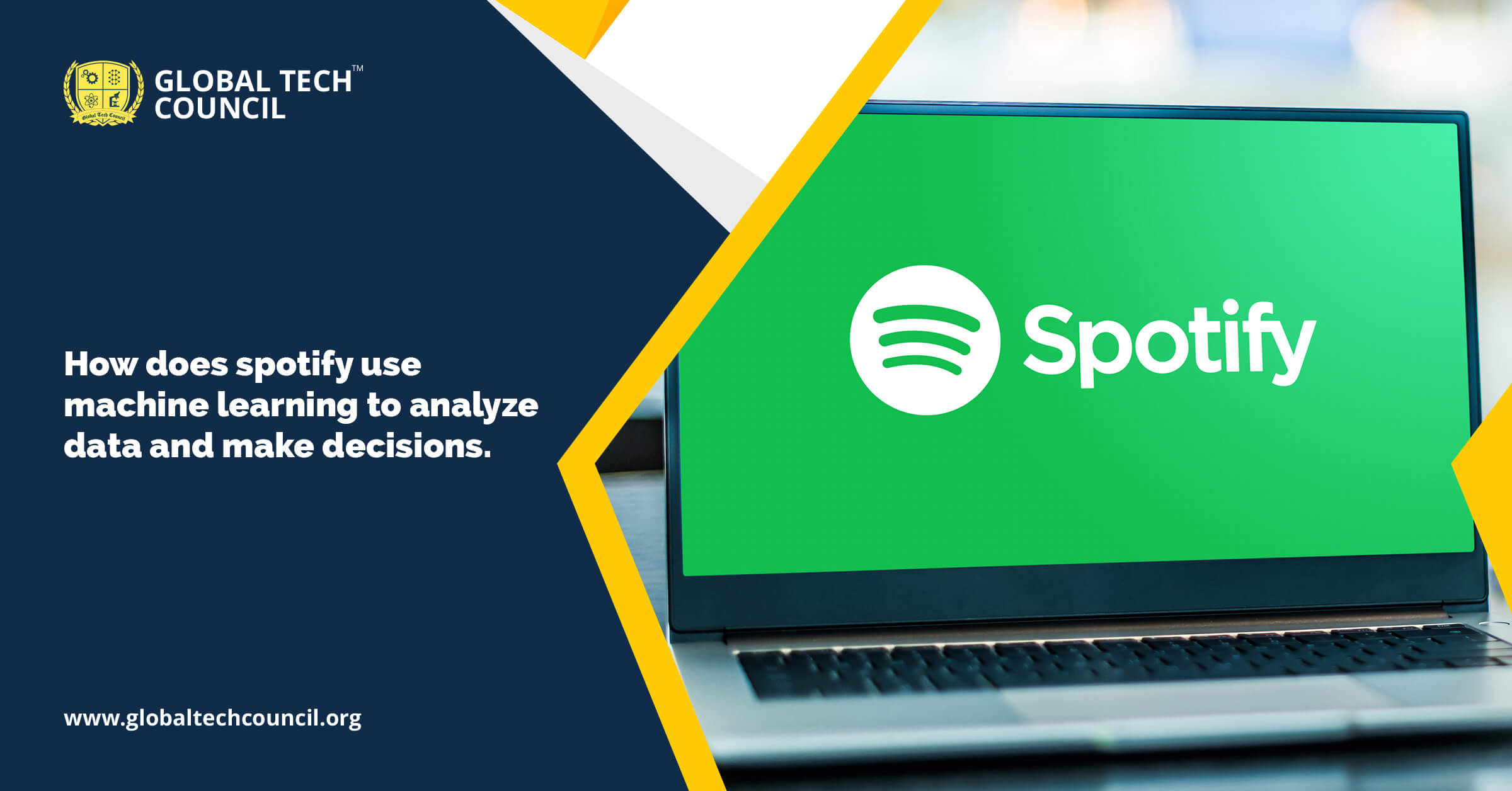
Spotify, the largest on-demand music agency within the entire world, embraced documents of compelling bounds from the scientific state using the latest technologies to market victory.
Spotify today has millions of online subscribers. The reason for its success lies in Spotify’s innovative use of advanced technology and machine learning processes that help to make effective business decisions. Let us read more about how the company uses machine learning to its advantage.
Table of Content
- Introduction
- How Spotify Programs ML and AI?
- Spotify’s Recommendation machine
- Future technologies of Spotify
- Conclusion
Introduction
Spotify does an excellent job of advocating paths through both daily mixtures and tracks radios. It wisely uses machine learning in data analysis to deliver personalized results to its customers.
Let us now deep dive into the nitty-gritty of the technological processes used by Spotify.
How Spotify Programs ML and AI?
Spotify offers an excellent personalized weekly playlist named “Discover Weekly,” certainly one of its flagship attributes. Every Monday, each consumer receives a brand new playlist of new advocated songs designed for their own personalized choice predicated in their own listening history and also the songs they’re most enthusiastic about.
Such exceptional use of machine learning to deliver the best service possible to its customers is an evolutionary step in future technology.
Spotify’s Recommendation machine
Spotify uses a mix of ML and AI models to get the “Discover Weekly” model. It used the following techniques and technologies:
Collaborative Filtering
Collaborative filtering is a well-known technique deployed by systems to form predictions regarding the user’s preferences on the premise of comparable user preferences.
In Spotify, the cooperative Filtering algorithms examine user-created playlists consisting of songs that the users want to hear. The formula adjusts playlists, staring at different songs that return within the playlists, and recommends those songs.
Natural Language Processing
Spotify uses NLP as AI-powered Spotify browsing, which includes track metadata, blog posts, the latest artists and songs on the internet, musician chat, news stories, and so on.
This allows Spotify to see what everybody is talking about regarding music, albums, and artists. It selects descriptive words, phrases, and other related texts from all of this information.
Spotify also has similar keywords organized under the headings of “cultural vectors” and “top terms,” as well as the songs and artists synonymous with these terms.
For more important words than others, specific weight is often measured (it shows the number of times individuals will be associated with their artists or songs). Spotify can also recognize common music words thanks to this feature.
Popularity Recommender
A popularity recommender recommends songs stratified by their popularity no matter the user’s preferences.
Future Technology of Spotify
It is fascinating to imagine how Spotify uses AI (Artificial Intelligence) expertise to show the tables in its app to produce AI-composed music that could push artists along with their labels. Up to now, Spotify insists this is true, although this is not the very first AI feature they found. AI Duet was published earlier this season, where the programmers generated a duet using the computer.
The Corporation used the information assessing method in a very creative way. Spotify used its enormous sums of data to establish a worldwide advertising campaign that emphasized a number of the bizarre user customs of 2016.
Opportunities that come with Machine Learning, AI, and Big Data
If more people use the Spotify Platform, its competing properties, such as user data and analytics, and other cutting-edge technology, will continue to grow.
Spotify will be able to use data to create a more personalised experience for consumers and keep them engaged with the app.
As the amount of data available grows, Spotify can gain more clout among recording studios and artists who need data to make business decisions.
Spotify may make a significant investment in the podcast space and use their data on user preferences to promote new content, increase interaction and redesign their current recommendation engine to provide similar functionality for podcasts.
Conclusion
Spotify is best known for its excellent user interface and continuously improving music recommendations. In terms of technology, it uses AI, Big data analyses, and Machine learning to upgrade and customize the music expertise for the listener. There is no doubt that Spotify is one of the best music streaming apps on the market.
The reason is its extensive use of available resources and innovative future technologies like machine learning, AI, Big Data to assist business processes.
Spotify has revolutionized the music app industry and showed the world how to make the best use of the technology.
If you are interested in learning more about AI and ML, you can check out various machine learning certification courses offered by Global Tech Council.